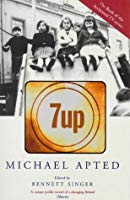My previous post Fred Stutzman and Facebook reminded me of an essay from the May/August 2000 issue of North American Review.
The essay I tore out and kept in my "Essays" folder lo these many years was by the writer Norman Lavers, now retired from teaching English and enthusiastically maintaining a site on The Robber Flies of Crowley's Ridge, Arkansas. If you want to know all there is to know about these vicious critters, that's the site for you.
The essay he wrote, titled "On the Simple Life," is a fine personal essay that sweeps over the course of his life, the choices he made, and the choices he continues to make. It's a cranky, curmudgeonly view of the modern world. He preaches about retiring early in your life and then going to work, being frugal with your time, money, and attention ("kill your TV" advice), and generally simplifying your life by letting go of the things that aren't needed in favor of the essentials that honor you.
The reason I kept the essay, I think, was that he put into words something I'd not seen up to that point. I've seen it since (Stutzman mentions it in my previous post) but I've come back to it so much in my mind that I thought I'd put the passages here.
He compares the bombardment of TV images to the Web's bombardment of opinion, flash, etc. You can guess his opinion.
Get off the internet. Oh, how can I? It's got everything on it. Exactly, and you're letting it all into your house and into your mind. Be more selective...[O]n the net, I have my privacy. You don't, you've let the whole world in. You've let everybody in, and yet no one's there. Virtual people have invaded your privacy. They're god-awful boring, but you're too mesmerized to respond by turning them off...
An essential part of getting off the web is: Don't do e-mail. But it's so convenient, so cheap, you will tell me. That's the problem. ..I inveighed against e-mail in one of my classes and a girl said, "Oh, but this is how I've been able to keep in touch with all my friends from high school. Without e-mail I couldn't have done it." I was too polite, of course, to say, You should be leaving those kids behind and getting on with your life. If you wouldn't have kept in touch without e-mail, it means you probably shouldn't be keeping in touch now. They are getting in the way of your maturing.
If someone distant wants to get in touch with me, he's going to have to sit down and write me a letter. It takes time, it costs the price of a stamp. He's going to have to say something that will still be valid several days later when I receive his letter. If I'm not worth it to him, then his emailed Have a nice day! is not worth my receiving...If I had e-mail, I would have a sort of obligation to checked to see what I had each day, and 99% of it (to judge by what my friends say) would be trash, another invasion of privacy. With letters, they come in the box, you can open them when you're ready, read them a few times, answer at your leisure, It's a more humane rhythm. Letters can approach to literature. Can you imagine wanting to read Keats's collected e-mail notes? E-mail is like television: you do it because it is free and easy--but in return it takes away your time, and for one good thing you get from it, you get 99 things of dross. If you are actively doing literary or scientific research, where real information is being exchanged, or if it's part of your job, okay, yes. For communication with people, no.
Lavers' preferred mode of engagement is to grow one's own creative projects, having to do with art or with nature, activities that take you out of yourself and place you in a state of meditation. Hence his enthusiasm with the Robber Flies.
Yes, it's over the top, but I like his firm this-is-how-it-is tone, which is what makes reading essays fun. Certainly, junk mail is an invasion of privacy, and one is not ever obligated to return an email immediately after it's been received.
But I was struck by Lavers' point about e-mail keeping alive relationships that should probably die a natural death and Fred's point about middle-aged Facebook users reconnecting with people from their high school and college days 20 or more years before. There is the warm flush of remembering what we used to be like, and there's a pleasing nostalgia that's surely fine to experience now and then, if only to remind us that maybe those old days weren't so bad. But we aren't those people anymore, and I don't wish to go back to that foreign country anymore. (A no-prize for whoever gets that literary reference!) And the economics of energy, time, and attention are such that we only have resources for the immediate, not the distant.
When I entered NCSU in 1979, I kept in touch with a few friends from high school (some of whom were in my freshman classes) but by my sophomore year, I was in a new world with new friends. When I left college, it took longer to separate myself from that comfortable world, but I eventually landed in Rocky Mount and started a new life there. I left in 1988 and brought no one with me from my 4 years there. If email had been around then, how long would I have stayed attuned to the local gossip, the dramas? I don't know. Given my state of mind and emotions at the time, I would probably have kept up an unhealthy level of attachment. It was good for me that email and FB weren't around back then.
Instead, I did (and still do) as Lavers suggested: I wrote letters. Letters to friends served as my journal, my writing practice, my meditation time. These days, with so little time available to me to get into the mindset that letter-writing demands, I send cards instead. I even send them to friends to who live nearby. There's something just more special and personal to me when I see an envelope with a stamp and a handwritten address. I think it's special enough to send to dear friends and I do it simply because I enjoy it. I don't expect reciprocity or obligation--that's not the reason to write to friends who've stood the test of time. One does it because of love and attachment and, I think, creative expression. Selfish reasons, ultimately, but delightful ones, as well.



![Reblog this post [with Zemanta]](http://img.zemanta.com/reblog_e.png?x-id=4e2deeac-9cfa-441a-af33-f41b11588037)

![Reblog this post [with Zemanta]](http://img.zemanta.com/reblog_e.png?x-id=2b7bc9d7-5a18-4c24-a9c9-167901367887)
![Reblog this post [with Zemanta]](http://img.zemanta.com/reblog_e.png?x-id=7c626e54-ef29-481d-93c2-ee4e61a88035)

